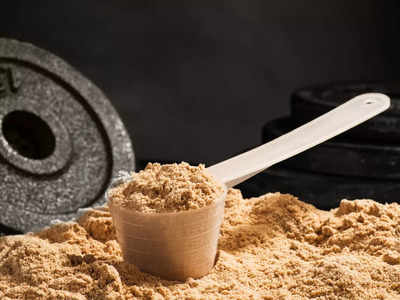The benefits of fasted weight traning
Weight training is one of the most effective ways to build muscle, strength, and improve your overall health and fitness. But did you know that you can also enhance your results by doing weight training in a fasted state?
Fasted weight training is when you lift weights on an empty stomach, usually in the morning before your first meal. This may sound counterintuitive, as many people believe that you need to eat before exercising to fuel your performance and prevent muscle breakdown. However, there are some scientific and practical reasons why fasted weight training can be beneficial for your body composition and health.
In this article, we will explore the pros and cons of fasted weight training, how to do it safely and effectively, and some tips to optimize your results.

What are the benefits of fasted weight training?
Fasted weight training can offer several advantages over fed weight training, such as:
- Increased fat burning. When you fast, your body depletes its glycogen stores (the stored form of carbohydrates) and switches to using fat as its primary fuel source. This means that when you exercise in a fasted state, you are more likely to burn fat than glucose for energy. Some studies have shown that fasted exercise can increase fat oxidation by up to 20% compared to fed exercise 12. This can help you lose body fat and improve your body composition over time.
- Enhanced insulin sensitivity. Insulin is a hormone that regulates blood sugar levels and promotes the uptake of glucose and amino acids into your cells. Insulin sensitivity refers to how well your cells respond to insulin. When you have high insulin sensitivity, your body can use glucose more efficiently and store less fat. When you have low insulin sensitivity, your body can become resistant to insulin and store more fat. Fasting can improve your insulin sensitivity by lowering your blood sugar and insulin levels 34. This can help you prevent or reverse metabolic disorders such as diabetes and obesity, as well as improve your muscle growth and recovery.
- Increased growth hormone production. Growth hormone (GH) is a hormone that stimulates muscle growth, fat burning, and tissue repair. GH levels naturally decline with age, which can lead to muscle loss, fat gain, and aging. Fasting can boost your GH levels by up to 2,000% in men and 1,300% in women 56. This can help you preserve or increase your muscle mass, reduce your body fat, and slow down the aging process.
- Reduced inflammation. Inflammation is a natural response of your immune system to fight infections and injuries. However, chronic inflammation can also cause damage to your cells and tissues, leading to diseases such as arthritis, diabetes, cancer, and heart disease. Fasting can reduce inflammation by lowering the levels of pro-inflammatory cytokines (molecules that trigger inflammation) in your blood 78. This can help you prevent or treat inflammatory conditions, as well as improve your overall health and well-being.
What are the drawbacks of fasted weight training?
Fasted weight training is not without its challenges and potential risks, such as:
- Reduced performance. When you exercise in a fasted state, you may have less energy and endurance than when you exercise in a fed state. This is because your glycogen stores are low or depleted, which limits your ability to perform high-intensity or long-duration exercises. Some studies have shown that fasted exercise can impair exercise performance by up to 10% compared to fed exercise. This can affect your progress and results in the long run.
- Increased muscle breakdown. When you fast, your body may also use some protein from your muscles as an alternative fuel source. This can lead to muscle breakdown or catabolism, which reduces your muscle mass and strength. Some studies have shown that fasted exercise can increase muscle protein breakdown by up to 30% compared to fed exercise . This can counteract the benefits of weight training and compromise your muscle gains.
- Increased hunger and cravings. When you fast, your appetite hormones such as ghrelin (which stimulates hunger) and leptin (which suppresses hunger) may fluctuate and cause you to feel hungrier or crave more food than usual . This can make it harder for you to stick to your fasting schedule and calorie intake, especially if you are not used to fasting or have a history of binge eating or disordered eating.
How to do fasted weight training safely and effectively?
If you want to try fasted weight training, here are some tips to make it safe and effective:
- Choose the right type of exercise. Fasted weight training works best with low-to-moderate intensity and short-to-medium duration exercises, such as strength training, circuit training, or high-intensity interval training (HIIT). These types of exercises can stimulate muscle growth, fat burning, and metabolic adaptations without exhausting your glycogen stores or causing too much muscle breakdown. Avoid high-intensity or long-duration exercises, such as endurance training, sprinting, or powerlifting. These types of exercises can deplete your glycogen stores quickly and impair your performance and recovery.
- Choose the right time of day. Fasted weight training works best in the morning, before your first meal of the day. This is because your glycogen stores are lowest in the morning, which means you can burn more fat and less glucose for energy. Also, your GH levels are highest in the morning, which means you can stimulate more muscle growth and repair. Avoid fasted weight training in the evening, after a long day of fasting. This is because your glycogen stores are already depleted, which means you can burn more muscle and less fat for energy. Also, your GH levels are lowest in the evening, which means you can stimulate less muscle growth and repair.
- Choose the right pre-workout fuel. If you want to optimize your fasted weight training, you may want to consume some pre-workout fuel that can boost your energy and performance without breaking your fast. Some options include:
- Black coffee or green tea. These beverages contain caffeine, which can enhance your alertness, focus, mood, and fat burning . They also contain antioxidants, which can protect your cells from oxidative stress and inflammation . However, avoid adding sugar, milk, or cream to your coffee or tea, as these can spike your insulin levels and negate the benefits of fasting.
- Branched-chain amino acids (BCAAs). These are essential amino acids that can prevent muscle breakdown and promote muscle growth and recovery . They can also provide some energy for your workout without affecting your insulin levels or ketosis (the state of burning fat for fuel) . However, avoid consuming too much BCAAs, as they can still contribute to your calorie intake and interfere with autophagy (the process of recycling damaged cells and proteins) .
- Creatine monohydrate. This is a supplement that can increase your muscle strength, power, and endurance by replenishing your phosphocreatine stores (a form of energy that fuels short bursts of intense activity) . It can also enhance your muscle growth, recovery, and hydration by increasing your muscle water content and protein synthesis . However, avoid consuming too much creatine, as it can cause bloating, cramping, or dehydration in some people .
- Choose the right post-workout meal. After your fasted weight training session, you should eat a balanced meal that contains protein and carbohydrates within an hour or so of completing your workout. This can help you replenish your glycogen stores, repair your muscle damage, stimulate your muscle growth, and regulate your appetite hormones. Some options include:
- Eggs and whole wheat toast
- Oatmeal and yogurt
- Chicken and rice
- Salmon with quinoa
Conclusion
Fasted weight training can be a useful strategy to enhance your fat burning, insulin sensitivity, growth hormone production, and inflammation reduction. However, it can also have some drawbacks such as reduced performance, increased muscle breakdown, and increased hunger and cravings. Therefore, you should weigh the pros and cons of fasted weight training before deciding to try it.
If you do decide to try fasted weight training, make sure to choose the right type of exercise, time of day, pre-workout fuel, and post-workout meal to optimize your results and minimize the risks. Also, listen to your body and adjust your fasting schedule and calorie intake according to your goals and needs.
Fasted weight training is not for everyone. If you have any medical conditions or concerns that may affect your ability to fast or exercise safely, consult with your doctor before attempting fasted weight training.





